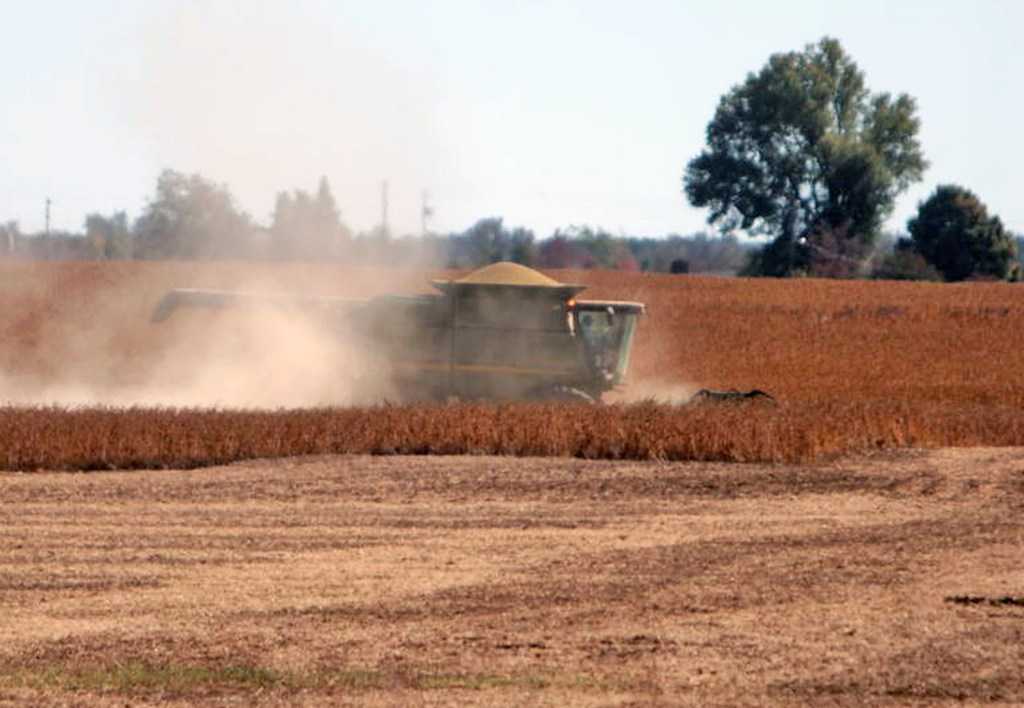PROPOSED AG BAILOUT: Plan draws praise, skepticism
Published 6:30 am Friday, July 27, 2018

- Soybeans are harvested in a Limestone County field in this file photo.
Politicians and agricultural leaders continue to raise questions about President Donald Trump’s plan to provide $12 billion to commodities producers hurt by tariffs.
The Alabama Farmers Federation this week issued a statement praising the U.S. Department of Agriculture’s three-part plan. Mitt Walker, the Federation’s director of national programs, said the plan proves the Trump administration recognizes “the impact intense trade negotiations” is having on farmers.
Trending
“Alabama farmers remain hopeful the ultimate solution will be a healthy trade environment where U.S. agriculture can compete on a level playing field with the rest of the world,” he said.
Elkmont farmer Jesse Hobbs said he wished details of the plan had been kept out of the public eye, for the simple reason that it’s too early to tell how many producers will be impacted by Trump’s trade negotiations.
Hobbs, who planted about 1,200 acres of soybeans this year, hasn’t been negatively affected by the tariffs. He said he wouldn’t know until the fall harvest season.
U.S. farmers are expected to grow 14.2 billion bushels of corn this year and 4.3 billion bushels of soybeans, down some from last year but still huge crops. There were 73.5 million pigs on farms as of June 1, the highest number on that date since records began in 1964.
“It’s just too early to tell,” Hobbs said of the USDA proposal. “$12 billion looks and sounds like a lot. (What a farmer receives from the government) might add up to a bushel.”
Hobbs said it’s possible farmers could benefit from strengthened trade deals. While China decided to buy its soybeans from South America, Europe is experiencing a severe drought. Hobbs said if U.S. farmers sell to Europe, it could offset losses from selling to China.
Trending
China is the largest buyer of U.S. soybeans and one of the largest importers of U.S. pork.
About the plan
U.S. Secretary of Agriculture Sonny Perdue called the aid package a short-term fix that will allow Trump to work on long-term trade deals. Some farmers have expressed concern that few details have been released.
The USDA said it planned to roll out some of those details around Labor Day and the program would begin to make payouts after the fall harvest. The deal is comprised of the following components:
• The Market Facilitation Program, authorized under the Commodity Credit Corporation (CCC) Charter Act and administered by the Farm Service Agency (FSA), will provide payments incrementally to producers of soybeans, sorghum, corn, wheat, cotton, dairy and hogs. The CCC is a USDA agency founded in 1933. It has authority to borrow up to $30 billion from the Treasury at any one time to “stabilize, support, and protect farm income and prices.”;
• A Food Purchase and Distribution Program through the Agricultural Marketing Service will purchase unexpected surpluses of affected commodities such as fruits, nuts, rice, legumes, beef, pork and milk for distribution to food banks and other nutrition programs; and
• The Trade Promotion Program administered by the Foreign Agriculture Service (FAS) in conjunction with the private sector will assist in developing new export markets for U.S. farm products.
Farmers said they would rather have Trump settle the trade disputes with China, Mexico, Canada and the European Union and get free trade flowing again.
Reaction from trade partners to Trump’s tariff policies have pushed soybean prices about 18 percent lower and corn and pork prices down 15 percent from the time Trump began discussing tariffs this spring.
American Farm Bureau Federation President Zippy Duvall praised the aid package but encouraged continued work toward improved trade.
“This announcement is substantial, but we cannot overstate the dire consequences that farmers and ranchers are facing in relation to lost export markets,” Duvall said. “Our emphasis continues to be on trade and restoring markets, and we will continue to push for a swift and sure end to the trade war and the tariffs impacting American agriculture.”
Hobbs couldn’t say whether he would accept government subsidies, but explained he would prefer not to. He’s also rather talk about the weather and the farmer’s role in feeding the world than tariffs or politics.
“If we could just get everyone in our country to understand where their food comes from, we’d all be better off,” he said.





